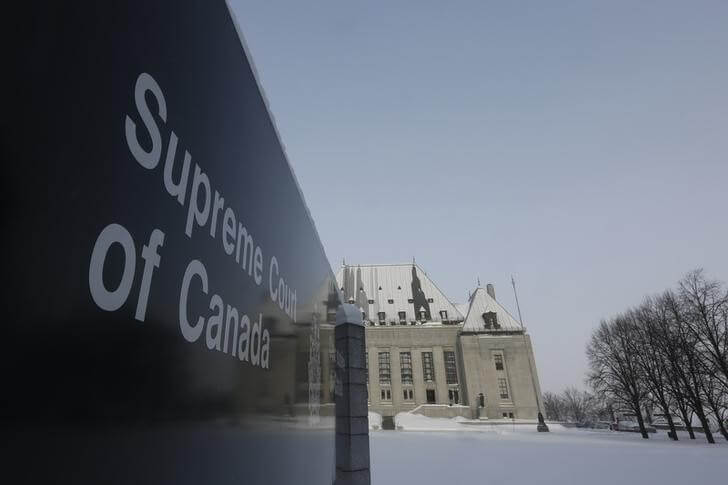By Ethan Lou
TORONTO (Reuters) – Canada’s Supreme Court on Thursday upheld a lower court decision to stop the execution of a New Brunswick man’s will that bequeathed his estate to U.S. white supremacists. The Ottawa-based Supreme Court declined to hear the appeal against a previous provincial court ruling, which was brought by the Canadian Association for Free Expression. It did not give a reason for the decision, in accordance with its usual practice. Freedom to give away one’s property has sometimes been limited in Canada, where courts have been known to quash wills that they decide go against public policy.
The association has said the provincial court’s decision in the case tramples on the rights of Harry Robert McCorkill, also know by the last name “McCorkell,” who died in 2004.
McCorkill bequeathed his estate to the National Alliance, a white-supremacist group based in West Virginia.
In 2013, Erich J. Gliebe, then chairman of the National Alliance, swore in an affidavit he knew McCorkill, who had lived in West Virginia, and that the man liked the “European cultural festivals” he had been promoting. In 2013, his sister, Isabelle McCorkill, successfully challenged the will, saying it was illegal and contrary to public policy.
The case attracted nationwide attention, and Jewish groups and the New Brunswick government joined the case as interveners.
Shimon Koffler Fogel, head of the Centre for Israel and Jewish Affairs, one of the interveners, said in a statement the center commends the appeal’s rejection.
In a separate case, the court also declined to hear the appeal of a woman who said her father was racist in his decision to exclude her from his will.
The woman said her now-deceased father, who is black and according to her, was a racist, excluded her because she had a child with a white man.
A Toronto court had rejected her claims, ruling that the will did not mention race as a reason to exclude her.
Jordan Atin, an estate lawyer and an adjunct professor at the Osgoode Hall Law School in Toronto, said the case differs from McCorkill’s as the latter involved an issue with the beneficiary – not the will itself. People in Canada do not normally need to justify their choices in bequeathing, but the McCorkill case involves an group whose activities are illegal in the country.
“To give money to that organization was seen to be, in essence, enhancing an organization that was committing crimes,” he said.
(Reporting by Ethan Lou in Toronto; Editing by Alan Crosby)
Canada top court rejects appeal in white supremacy probate case

By Ethan Lou


















